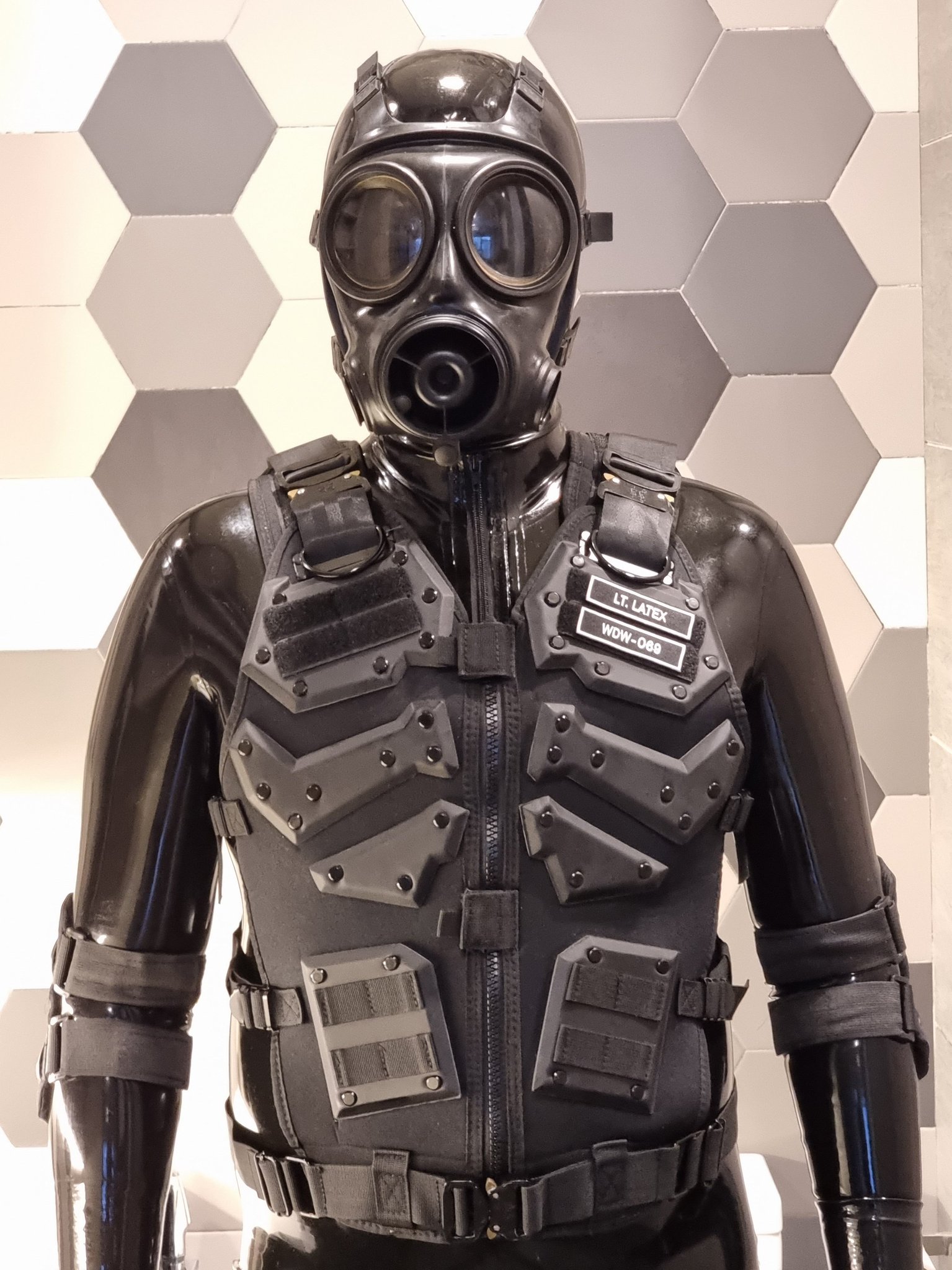Have you ever wondered about the various roles and responsibilities within military or even police forces? It's a rather intricate system, full of different positions, and one that often sparks curiosity is that of a liutenant. This rank, you see, carries a lot of weight and represents a vital piece of the command structure in many organizations around the globe.
A liutenant, in many ways, serves as a crucial link, acting as an official who can step in for a higher-ranking individual. This particular position is quite common across different branches, from the army and navy to the marines and air force. It's also a rank found within the American police force, so it's not just a military term, which is interesting.
So, what exactly does a liutenant do, and why is this rank so important? We're going to take a closer look at what this title means, how it's used, and the significant duties that come with it. It's almost like peeling back the layers of a very important job, you know, to see what makes it tick.
Table of Contents
- What is a Liutenant?
- Liutenant in Naval Operations
- Liutenant in Ground Forces
- The Liutenant as a Company Grade Officer
- Liutenant Rank Progression
- Liutenant in the US Military
- How to Use the Term Liutenant
- Frequently Asked Questions About Liutenants
- Conclusion: The Enduring Importance of the Liutenant
What is a Liutenant?
A liutenant, at its very core, is an official given the authority to act on behalf of someone with a higher position. This definition, you see, really captures the essence of the role. It means they are trusted to carry out duties and make decisions that, under other circumstances, would fall to a more senior person. This is quite a significant trust, actually.
This title, which is an officer of middle rank in the armed forces, is pretty widely recognized. It's a position that signifies a certain level of responsibility and command. When you hear about an officer of low rank in the army, navy, marines, or air force, or even in the American police force, they are often referring to a liutenant. It's a bit like a stepping stone, in some respects, to even greater leadership roles.
The role can vary slightly depending on the specific branch of service or even the country. However, the fundamental idea of being an empowered official, ready to take action for a superior, stays consistent. It's a pretty universal concept, you know, this idea of deputizing someone to handle important matters.
Liutenant in Naval Operations
Historically, liutenants were very often put in charge of smaller vessels. These were ships, you understand, that perhaps weren't large enough to need a full commander or captain at the helm. This practice highlights how important their leadership skills were, even with less experience than a more senior officer.
When a liutenant was given command of such a vessel, they were typically referred to as a "liutenant commanding" or sometimes a "liutenant commandant." This distinction, you might say, made it clear they held the top position on that particular ship. It's a specific way of naming their role, really, showing their direct responsibility for the vessel and its crew.
The U.S. Navy or Coast Guard, for instance, has a liutenant ranking above a liutenant junior grade. This shows a clear progression within the naval hierarchy. It means that as you gain experience and demonstrate capability, you move up, which is a fairly common structure in many organizations, isn't it?
Liutenant in Ground Forces
In most armies around the world, the liutenant is considered a company grade officer. This means they are among the lowest ranks of commissioned officers. Despite being "low" in rank, their duties are incredibly important, you know, for the day-to-day operations of units.
A liutenant usually commands a small tactical unit. A common example of such a unit is a platoon. A platoon, for instance, is a group of soldiers, and the liutenant is the person directly responsible for leading them in various situations. This is a very hands-on leadership role, actually.
This direct command over a unit like a platoon means the liutenant is on the front lines, so to speak, leading their people. They are the ones giving orders, making quick decisions, and ensuring the unit functions as it should. It's a big job for someone who is still relatively junior in the overall officer structure.
The Liutenant as a Company Grade Officer
The term "company grade officer" is quite significant when talking about a liutenant. It places them within a specific category of leadership, typically the initial ranks for commissioned officers. These officers are the ones who usually lead smaller groups of personnel, which is a pretty vital part of any large organization.
Being the lowest rank of commissioned officer in most armies of the world, as stated in our text, highlights their foundational role. They are the starting point for officer careers, which means they are learning the ropes of leadership while also being directly responsible for their assigned units. It's a challenging but very rewarding stage, apparently.
This position requires a lot of practical application of training and theory. They are not just learning; they are actively leading and making decisions that affect their team. This practical experience is, you know, absolutely critical for their development as future leaders, and for the immediate success of their units.
Liutenant Rank Progression
In many military forces, particularly in the army and marines, liutenant is considered the lowest junior commissioned officer rank. This means it's often the first step an individual takes after becoming a commissioned officer. It's a starting point, in a way, for a career in military leadership.
The path for a liutenant often involves moving up through different grades. For example, in the U.S. military, there's often a "liutenant junior grade" before a full "liutenant." This shows a clear path of advancement, which is pretty standard in professional careers.
Beyond the liutenant rank, there are further promotions, such as to "liutenant commander." This progression indicates increasing levels of responsibility and experience. It's like climbing a ladder, where each rung represents more authority and a broader scope of duties, which is quite common in any structured organization, isn't it?
Liutenant in the US Military
In the U.S. Army, Air Force, and Marines, the liutenant rank holds a specific place. It's generally the entry point for commissioned officers, meaning individuals who have completed officer training and received their commission. This is a big step, you know, moving from a trainee to a leader.
The U.S. Navy or Coast Guard also has liutenants, but their ranking structure is slightly different. A liutenant in these branches ranks above a liutenant junior grade, which is a distinct rank in itself. This small difference in naming conventions is something to note, as it can be a bit confusing if you're not familiar with it.
These officers, regardless of the specific branch, are key to the operational success of their units. They translate higher-level strategies into actionable plans for their teams. This makes them, you know, absolutely essential for the everyday functioning of the armed forces.
How to Use the Term Liutenant
The meaning of liutenant is, as we've discussed, an official empowered to act for a higher official. This core definition helps us understand how to use the term correctly in a sentence. It's about recognizing their authority and their place in the command chain.
For example, you might say, "Liutenant Campbell ordered the man at the wheel to steer for the gunboat." This sentence, taken from our provided text, shows a liutenant giving a direct command. It illustrates their authority within a specific context, which is very clear, isn't it?
The title can also refer to a person who holds an office, civil or military. This means the term isn't strictly confined to military use, though that's where it's most commonly heard. It's a versatile word, you know, for someone who acts as a deputy or assistant to a superior.
It's interesting to note the pronunciation, especially in the U.S., where it's often pronounced lɛfˈtɛn ənt. This is a detail that often comes up when discussing the word, and it's good to be aware of the common usage. Understanding the pronunciation helps in using the term naturally, which is quite helpful.
Frequently Asked Questions About Liutenants
Here are some common questions people often have about this important rank:
What is the primary role of a liutenant?
A liutenant's main job is to act as an official who can step in for a higher-ranking officer. They are empowered to carry out duties and make decisions that a more senior person would typically handle. This makes them, you know, a vital link in the chain of command, ensuring continuity and direct leadership for smaller units.
Is a liutenant a high-ranking officer?
No, a liutenant is generally considered an officer of low rank, especially in the army, navy, marines, or air force. They are typically the lowest rank of commissioned officer in most armies of the world, meaning they are at the beginning of their officer career path. It's a starting point, you see, for leadership within the forces.
What kind of unit does a liutenant typically command?
A liutenant normally commands a small tactical unit. A very common example of such a unit is a platoon. In naval settings, a liutenant might even be in command of smaller vessels that don't need a commander or captain. They are, in essence, the direct leaders for these smaller groups, which is a very hands-on responsibility.
Conclusion: The Enduring Importance of the Liutenant
The liutenant, as we've explored, is a truly foundational rank across various armed forces and even in civilian police structures. From commanding small naval vessels to leading platoons on the ground, their role as an official empowered to act for a superior is consistent and absolutely vital. This position, you know, represents the first significant step into commissioned leadership, where individuals learn to apply their training in real-world scenarios, guiding their teams directly.
Understanding the duties and progression associated with a liutenant offers a clearer picture of how large organizations maintain order and achieve their goals. It highlights the importance of every link in the chain of command, especially those who are directly responsible for the immediate actions of smaller groups. To learn more about military ranks and their significance on our site, and to explore how these roles fit into broader strategic plans, you might also want to visit this page for more general information about defense forces.



Detail Author:
- Name : Kylee Williamson
- Username : ttoy
- Email : tbeatty@howe.info
- Birthdate : 1984-12-04
- Address : 372 Destiny Divide Apt. 311 East Moses, AZ 10836-6379
- Phone : 1-248-324-9355
- Company : Bradtke Group
- Job : Embalmer
- Bio : Quaerat accusantium vitae eos numquam. Incidunt laudantium totam illum delectus facilis. Esse eius laudantium est.
Socials
tiktok:
- url : https://tiktok.com/@dlarkin
- username : dlarkin
- bio : Consequuntur cum iure quidem tempora inventore.
- followers : 5619
- following : 1765
twitter:
- url : https://twitter.com/larkind
- username : larkind
- bio : Aut quia dolor ut iste incidunt molestiae. Quaerat illo rerum libero assumenda dicta qui. Molestiae quod qui quis aliquid nobis tempore.
- followers : 3762
- following : 1642

